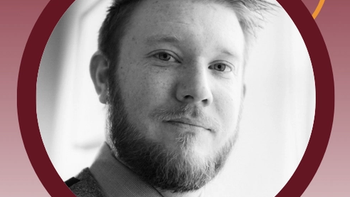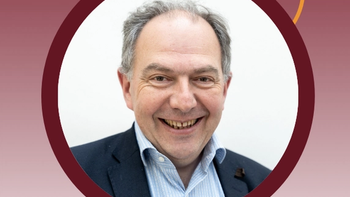
- Applied Clinical Trials-10-01-2006
- Volume 0
- Issue 0
Adopting Orphans: Who Does it Best?
A new report from the European Union grades member states on their orphan drug incentives.
The ropean Union adopted its orphan drug rules back in 1999.1 The rationale is well known: to stimulate research and development of treatment for rare diseases. And while the EU has made provision at the central level for promoting orphans, it was always clearly understood that the member states would be doing plenty themselves to help neglected patients.
Peter O'Donnell
So, how well have the member states responded to their own conception of this duty? The EU has come up with an inventory—researched and validated with the member states themselves. It provides a listing of the good, the bad, and the ugly (or, to be more charitable, the good, the not-so-bad, and the ugly).
The good
On the basis of the EU report, only three of the 25 member states would appear to qualify as good: France, Italy, and The Netherlands.
In France, rare diseases were included as one of the five major priorities of the August 2004 Public Health law and in November 2004, a national plan for rare diseases outlined priorities, including increased epidemiological knowledge, improved access to treatment, further efforts in favor of orphan drugs, and promotion of research on rare diseases. This followed the creation of the Institute for Rare Diseases in 2002, which has set up, with French pharmaceutical companies, a European Rare Disease Therapeutic Initiative to ease researchers' access to molecules developed by the pharmaceutical industry and to evaluate their therapeutic potential.
A Call to Action for EU Member States
Rare diseases are also a priority in the call for proposals under the Hospital Programme for Clinical Research; this already financed 22 clinical research projects in 2003, with grants ranging from €75,000 to €640,000 per project, and a further €22.5 million will be available from 2005–2008. Free scientific advice is available for orphan medicines from the French medicines agency, and there are tax breaks or exemptions for companies sponsoring orphans. Fast-track reimbursement measures are in place for compassionate use.
The French medicines agency Internet site has a list of clinical trials for rare diseases, a list of compassionate use authorizations (cohort use) from 1994 onward, and other general information on hospital preparations. The National Plan also foresees an annual call for proposals for clinical centers of reference for rare diseases.
In Italy, a national network for rare diseases includes a national registry for diagnostic and epidemiological purposes, and research is coordinated with the regions. There is a national project for standardization and quality assurance of genetic testing. A national call for proposals for scientific projects related to rare diseases is being funded in 2005–2006 in collaboration with the United States, with further national funding in the pipeline for projects from research to clinical trials.
Ten percent of the annual tax on the promotional activities of pharmaceutical companies goes toward research on rare diseases and clinical trials using orphan drugs. After diagnosis in a designated hospital, patients can obtain free treatment. A national center for rare diseases provides information to patients, families, and health workers, and education to health workers. It also operates a database listing orphan drugs available in the country and collaborates with patient associations.
The Netherlands makes provision for waiving the Dutch registration fee for products for rare diseases. Some €10 million has been granted for rare disease research through an innovation scheme, started in 1996 and funded until 2011, which subsidizes researchers in specific phases of their scientific careers or clinical fellows who want to combine their education as a medical specialist with clinical research.
Some €2 million has been provided for rare disease projects under a new grant scheme in gene therapy started in 2005, and which will run until 2013. And a new state program specific to rare diseases and orphan drugs is being developed. The national steering committee on orphan drugs provides free advice and has also funded rare disease projects with €50,000 per project per year; it also functions as an information center for rare diseases and orphan drugs. And the Health Ministry is funding an orphan business developer who is starting to stimulate Dutch academic researchers and pharmaceutical companies to develop orphan drugs.
For reimbursement purposes, where no alternative treatments exist, companies are not obliged to show pharmaco-economic data to support their application for an orphan, and in university hospitals, a new almost total reimbursement method introduced in 2006 is designed to stimulate product development. Ten million euros is also being made available per year for out-of-hospital treatment with orphan products whose costs cannot be reimbursed because of insufficient data on added therapeutic value.
The not-so-bad
Most of the member states fall into what could charitably be termed the not-so-bad category—even the large countries. Belgium has brought in new rules on reimbursement of orphan medicinal products. Since July 2004, a specialized committee of doctors within the national health insurance organization has issued opinions on individual rights to reimbursement with orphan products, and there is an accelerated review process for orphan medicines, with a solidarity fund helping patients get reimbursement. It is also working on draft legislation to extend the definition of orphan products, and to broaden the base for their reimbursement in hospitals and to self-employed workers.
Special exemptions for companies researching orphan medicines are also planned, so that they can obtain a reduced rate of the turnover tax that all pharmaceutical companies are subject to. And Belgium is supporting academic and industrial research on rare diseases via private funding through patient associations, as well as establishing a national contact group on rare diseases.
In the Czech Republic, some reductions are available for administrative fees for product registration and for authorization or registration of clinical evaluations, and rules relating to the language on packaging have been eased.
The Danish Medicines Agency provides free scientific advice and can authorize the sale or dispensing of medicinal products that are not marketed in Denmark for other purposes than clinical investigations. Patients with life-threatening diseases for which there are no well-documented treatment options can be offered experimental treatment on a named-patient basis. A public database on rare diseases has been set up, and the national health system operates a network of specific referral centers for rare diseases.
In Estonia, there is financial support for research on rare diseases, and for patient associations. And reimbursement is decided on the same basis as for other medicines.
In Finland, exemptions were available from national marketing authorization fees until November 2005, and now the National Agency for Medicines gives free administrative and scientific advice for the development of orphans, and makes concessions on inspection and authorization procedures. There is funding within general provision for medical research. No special concessions are made for reimbursement, but the customary health economic evaluation may not always be required.
In Germany, there is €5 million a year in government support for a network for research into rare diseases, which is currently backing basic and clinical research in clinical centers, specialized laboratories, and patient organizations. A September 2005 amendment to the German drug law allows for preauthorization access to orphan drugs. There are also numerous regional sources of funding. All medicinal products, including orphan drugs, are included in a public database.
Hungary provides financial support for purchasing orphan medicines for some rare conditions (such as Fabry disease or adult-type chronic myeloid leukemia). A committee on the treatment of rare conditions has been set up to ensure that people suffering from rare conditions receive adequate care.
In Latvia, fees can be reduced for evaluation or registration of medicines intended for the treatment of a rare disease, even when not officially designated as an orphan, and import can be allowed for nonauthorized medicines for rare diseases on a named- patient basis.
Lithuania earmarks health funds for reimbursing orphan products and medicines for rare diseases on the advice of a committee for medicines and medical treatment for very rare diseases and conditions.
Luxembourg hosts the Engelhorn Foundation for rare diseases, which has set up a research database for everyone interested in orphan medicines, and it also supported and co-hosted a major European Conference on Rare Diseases in June 2005.
Poland set up a National Forum on the Treatment of Orphan Diseases in 2005, grouping together associations that have been seeking to ensure care and treatment are provided for those suffering from orphan diseases. And it is planning to introduce a specialist drugs category that will allow expensive therapies (such as treatments involving orphan drugs) to be covered by the reimbursement system.
Slovakia supports some academic research for specific rare conditions. And Slovenia allows labelling in any EU language, with stickers in the Slovenian language, and reduced fees for marketing authorization procedures; it also negotiates prices for orphan drugs.
In Spain, a national research institute for rare diseases has been funded since 2003, and specific research projects and networks into rare diseases since 2001. Compassionate use is allowed, and public information includes lists of available orphan drugs. State support is also provided for patient associations, and national coordination measures include a national ethics committee for rare diseases.
In Sweden, the national research council for medicine supports research on rare diseases (with more than €1 million in 2005), and the Swedish Cancer Society provides some
€3 million a year in support to clinical research into rare cancer types fulfilling the orphan drug criteria. The national authorities also waive or reduce fees for scientific advice and other regulatory activities, and clinical trial application fees are usually waived for noncommercial sponsors lacking industry support.
In the United Kingdom, patients with rare diseases receive drugs on a named-patient basis, but there is no separate budget for orphan drugs. Home delivery is available for products such as enzyme replacement therapies, and a specialist advisory group provides mechanisms for care of patients with a selected list of very rare disorders. Grants are available to support patient organizations, and within the national health system, a separate system exists for providing funding to specialized centers of reference (around 50) for particular conditions (not necessarily rare diseases), diagnoses or procedures. Some regional specialist services also exist for genetic diseases, but these are funded separately.
And the ugly
But right down at the bottom of the classification, Cyprus, Greece, and Ireland have not reported any national measures to support research into or the development and availability of orphan medicinal products or medicinal products that may be designated as such.
In Malta, incentives for orphan medicinal products are not yet established, and are still being considered.
Austria and Portugal used to waive national fees for marketing authorization for orphan drugs—but this no longer amounts to an incentive, because since November 2005, all designated orphan medicines have had to go through the EU's centralized route for marketing authorization. And since then, neither Austria nor Portugal has indicated any additional measures.
Peter O'Donnell is a freelance journalist who specializes in European health affairs and is based in Brussels, Belgium.
References
1. Regulation (EC) No 141/2000 of the European Parliament and of the Council on orphan medicinal products, adopted on 16 December 1999 and published in the OJ, L18 (1) (22 January 2000).
Articles in this issue
over 19 years ago
Impact of EU Directive on Clinical Developmentover 19 years ago
Assessing Safety in Clinical Trialsover 19 years ago
eShowcase: eCTDXPress Aspireover 19 years ago
eShowcase: LabPas CT 2.5over 19 years ago
Informed Consent Considerationsover 19 years ago
eShowcase: GlobalView EventNetover 19 years ago
Subject Protection Issues Gain Broad Supportover 19 years ago
Data Management: R.I.P. or Brave New World?over 19 years ago
Hurricane Katrina: What Have We Learned?over 19 years ago
Broad Introduction to CTsNewsletter
Stay current in clinical research with Applied Clinical Trials, providing expert insights, regulatory updates, and practical strategies for successful clinical trial design and execution.




